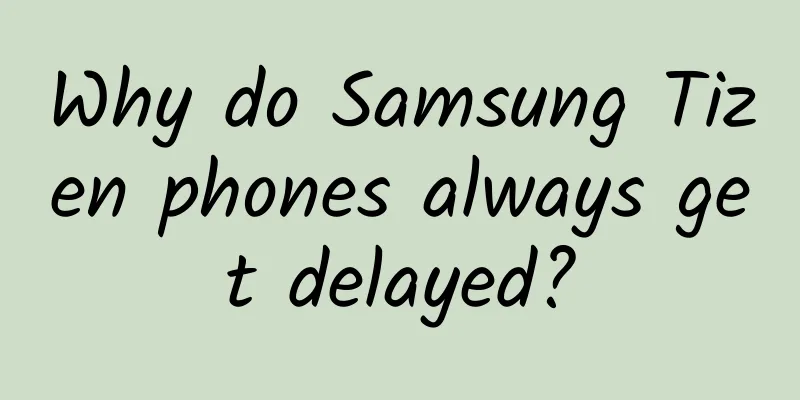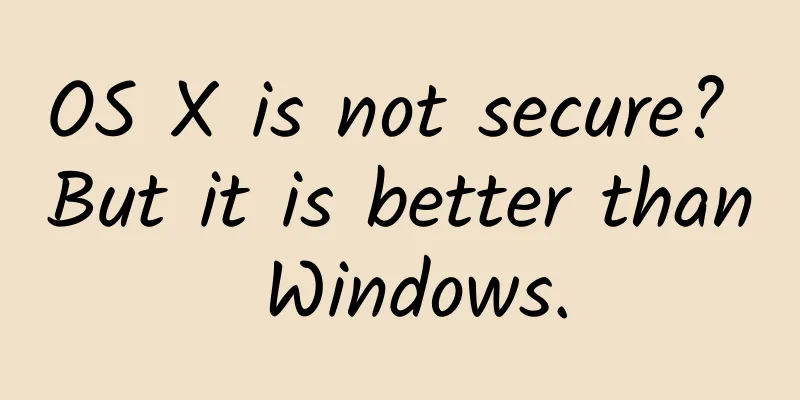Why do Samsung Tizen phones always get delayed?

|
Samsung announced last Friday that the Tizen smartphone Samsung Z, which was originally scheduled to be launched in Russia on the 10th, will be delayed. This is the second time Samsung has postponed the launch of Samsung Z after MWC. Samsung phones are so good, why do Tizen phones frequently delay release? Samsung Z is the first smartphone equipped with Samsung's self-developed operating system Tizen. In February 2012, Samsung teamed up with Intel to launch a new operating system Tizen after integrating the two operating systems LiMo and MeeGo. Outside analysts believe that Samsung wants to get rid of its dependence on Google Android and launch smart terminal devices using its own operating system. Since then, rumors about Samsung launching Tizen phones have continued to circulate, but it was not until June this year that Samsung officially announced its first Samsung Z smartphone equipped with Tizen system at the Tizen Developer Conference held in San Francisco, and announced that the phone will be launched in Russia first in the third quarter and then in other markets. At the previous MWC World Mobile Congress, Samsung did not launch this phone as scheduled, but instead released a number of wearable devices such as Gear 2 and Gear Fit equipped with Tizen system. It is reported that the Samsung Z phone is equipped with a 4.8-inch AMOLED display panel with a 720p resolution and a quad-core 2.3GHz processor. Samsung has not announced the specific model of the processor, and it is still uncertain whether it comes from Qualcomm, Intel or Samsung itself. Samsung announced last Friday that the launch of the Tizen smartphone Samsung Z was delayed again, indicating that Samsung is not yet fully prepared for Tizen smartphones. Samsung said in a statement that Samsung Z will only be launched in the Russian market when it can provide users with more abundant applications. Samsung Tizen smartphones are frequently delayed, and the reasons may be: 1. The processor is undecided According to the latest statement, the reason why the first Tizen system phone was delayed is mainly due to processor problems. The Tizen system phone planned by Japanese telecom operator DoCoMo is equipped with Qualcomm Snapdragon 800 processor, but since Qualcomm is not a member of the Tizen system alliance and is the biggest competitor of Samsung and Intel in the chip field, it has to further postpone the launch of the product to solve this problem. Currently, only Qualcomm can provide mature chips compatible with LTE 4G network modems, so most operators currently use Qualcomm processors. DoCoMo, which hopes that Tizen will support its own 4G network, naturally has the same idea. Sources said that Intel's latest 22nm Merrifield processor will be compatible with LTE 4G network modems and will be used in the first Tizen system product, which will meet the operator's requirements for supporting 4G networks. However, it is still unknown when Intel's latest Merrifield product will be officially launched. Intel has previously sent out invitations for its chip exhibits, saying that it will officially hold a press conference in March, but it seems that it will still take some time to implement it in products and mass-produce it on the market. In early June this year, Intel demonstrated the first smartphone based on the Merrifield chip and claimed that Merrifield is mainly aimed at the high-end smartphone market and will be available to operators and device manufacturers early next year. This means that the release of Tizen smartphones is likely to be postponed until next year. 2. Tizen ecosystem is not mature enough At the 2014 MWC, JK Shin, co-CEO of Samsung Electronics and head of the mobile department, admitted that it is still too early for Samsung to launch a smartphone equipped with the Tizen system, and Samsung still needs to optimize many aspects to make it mature enough. The "many aspects" mentioned by JK Shin may include mobile phone applications. Previously, Samsung has created more than 6,000 applications for the Tizen system by holding application writing competitions, but this is a huge gap compared with the more than 1 million apps on Android and iOS, and even the 245,000 apps on WP. To solve this problem, the Tizen platform chooses to be compatible with a large number of Android applications. On the other hand, Samsung is in a transitional stage of "transforming from a hardware manufacturer to a platform manufacturer". In the field of application developers, Samsung does not have a strong appeal similar to that in the hardware industry chain, and Tizen does not have enough influence. 3. Immature channels: Operators are not enthusiastic For mobile phone manufacturers, a large part of sales depends on operator channels. Therefore, whether operators support it has a great impact on the sales of mobile phones. NTT DoCoMo, Japan's largest mobile operator, was once one of Tizen's close partners. The company originally planned to launch the first smartphone equipped with the Tizen operating system in mid-January this year. However, at the last minute, NTT DoCoMo canceled the release plan of the Tizen smartphone. In the US market, mobile operator Sprint joined the Tizen Federation in May 2012, but according to sources, Sprint had left the Tizen Federation last year, hoping to "focus resources on products that can be released immediately." In the European market, Telefonica also withdrew from the Tizen Federation. The telecom operator chose to release its first smartphone equipped with Firefox OS last year. In addition, Orange, a French mobile operator and member of the Tizen Federation, said that the development speed of Tizen has not reached the maturity they expected. There is no Tizen phone in the company's smartphone roadmap. Without the support of many international operators, it is difficult for Tizen phones to make breakthroughs in channels and attract more hardware partners to participate. As a winner of Toutiao's Qingyun Plan and Baijiahao's Bai+ Plan, the 2019 Baidu Digital Author of the Year, the Baijiahao's Most Popular Author in the Technology Field, the 2019 Sogou Technology and Culture Author, and the 2021 Baijiahao Quarterly Influential Creator, he has won many awards, including the 2013 Sohu Best Industry Media Person, the 2015 China New Media Entrepreneurship Competition Beijing Third Place, the 2015 Guangmang Experience Award, the 2015 China New Media Entrepreneurship Competition Finals Third Place, and the 2018 Baidu Dynamic Annual Powerful Celebrity. |
<<: Why don’t we like wearing bracelets?
Recommend
When it comes to college entrance examination poster copywriting, who do you admire the most? ?
A special month of June, with Children’s Day , Gr...
Nut Pro review: More innovative than iPhone, the most worthwhile Hammer phone to buy in five years
How to integrate the almost paranoid spirit of cr...
Is the franchise fee of Yulin Ticketing Mini Program high? Yulin Ticketing Mini Program Franchise Fees and Process
How much does it cost to join the Yulin Ticketing...
Boys born after 2000 have been drinking Coke as water for a long time, which has caused all their teeth to decay. Do you have "cola teeth"?
Science Fiction Network reported on February 15 (...
A large group of finless porpoises appeared in the Yangtze River! This group of "smiling angels" is the "barometer" of the Yangtze River's ecology
Recently, Anhui Province discovered a large group...
Zunyi SEO Training: How to improve the quality of website optimization? How do search engines judge?
The quality of a website's content directly a...
"I am autistic" has become a popular Internet phrase. Is it a joke or a real illness?
In recent years, "I am autistic" has be...
How to calculate keyword conversion rate in Baidu bidding?
1. Conversion rate = number of orders/number of c...
One action can cause your blood vessels to collapse instantly! Don’t wait until you get hurt to regret it!
This article was reviewed by Fang Jie, Associate ...
With an idle rate of up to 70%, why have small household appliances become the “bottom of the box”?
In the past few days, Ms. Liu cleaned her house a...
For B-side operations, you should master the thinking patterns and common sense!
1. Discussion The reason for writing this article...
91 Ten Articles: LG Magna will trial mass production of cars for Apple, Baidu and Didi obtain autonomous driving licenses
1. Hongguang MiniEV ranked third in the March new...
Pick up your gun and follow me to watch the super gun king shoot the screen
What is real-life CS? Real-life CS laser gun batt...
A new type of colored fiber cotton has been successfully created. Will there be colorful cotton in the future?
Science Fiction Network, January 6 (Xu Mingyang) ...
How to develop a hit brand: to piggyback on traffic or to create traffic?
Introduction: Good content, when spread spontaneo...









